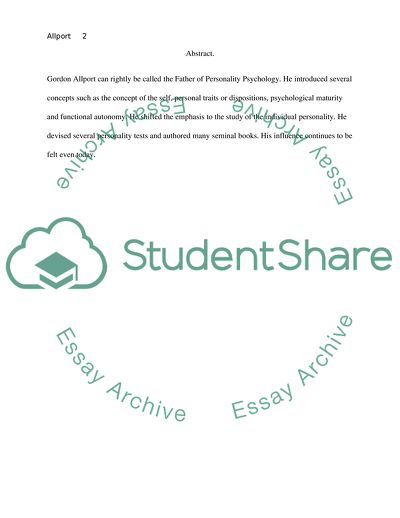Cite this document
(Gordon Allport as the Father of Personality Psychology Coursework Example | Topics and Well Written Essays - 1250 words, n.d.)
Gordon Allport as the Father of Personality Psychology Coursework Example | Topics and Well Written Essays - 1250 words. https://studentshare.org/psychology/1712574-gordon-alport
Gordon Allport as the Father of Personality Psychology Coursework Example | Topics and Well Written Essays - 1250 words. https://studentshare.org/psychology/1712574-gordon-alport
(Gordon Allport As the Father of Personality Psychology Coursework Example | Topics and Well Written Essays - 1250 Words)
Gordon Allport As the Father of Personality Psychology Coursework Example | Topics and Well Written Essays - 1250 Words. https://studentshare.org/psychology/1712574-gordon-alport.
Gordon Allport As the Father of Personality Psychology Coursework Example | Topics and Well Written Essays - 1250 Words. https://studentshare.org/psychology/1712574-gordon-alport.
“Gordon Allport As the Father of Personality Psychology Coursework Example | Topics and Well Written Essays - 1250 Words”. https://studentshare.org/psychology/1712574-gordon-alport.


